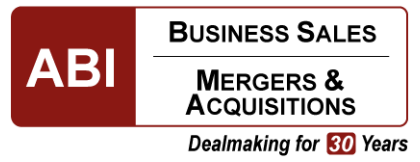Financing
There are three primary ways to finance the acquisition of a Business:
- Buyers funds (may include friends and family loans)
- Seller financing
- SBA 7A loans (SBA 504 loans must include acquisition of the related real estate)

Traditional Financing
Financing options like SBA 7a loans have made it easier for many buyers to cover a significant portion of the purchase price with favorable terms, reducing the need for a large upfront cash investment.
These loans are especially valuable because they help entrepreneurs preserve working capital, which is crucial for running and growing the business after the acquisition.
SBA 7a loans are available through many commercial banks, with most having an SBA division or specialist. Typically, SBA loans cover 50% to 75% of the purchase price, with the lender making the loan and the SBA guaranteeing 75% to 90% of it. While the SBA sets specific guidelines for lenders, banks often have their own additional requirements. Not all SBA lenders are the same—there’s a wide variety in their expertise and unique requirements. Plus, banks often shift in and out of the SBA lending market as the economy and SBA guidelines change.
Because of these fluctuations, securing an SBA-guaranteed loan can be challenging.
However, ABI has access to some of the best lenders and professionals in the industry.
ABI Advisors often pre-qualify businesses for SBA loans, ensuring that they meet the financial requirements for loan approval before putting them on the market. This is helpful to buyers because it reduces uncertainty and streamlines the process of taking on a new business.
Seller Financing
Seller financing often plays a key role in dealmaking, as it reduces the buyer’s immediate financial burden and aligns the seller’s interests with the business’s success after the sale.
In seller financing, the seller issues a Secured Promissory Note to the buyer, offering a competitive fixed interest rate.
Additionally, the seller takes a lien on the business assets and receives a personal guarantee from the buyer, with repayment typically made over 2 to 5 years.
Additional Financing Options
Earnout: An earnout can help bridge the gap between a buyer’s and seller’s expectations on the sale price. It makes a portion of the purchase price payable to the seller based on the business’s post-closing performance. The best practice is to keep it simple—focused on target revenue or measurable results within 6 to 24 months.
Employment Agreements: Depending on the buyer, it may be beneficial for the seller to stay on as an employee for a short period after the closing (6 months to 2 years). This provision would be negotiated into the purchase agreement and can sometimes include a bonus provision.
ROBS (Rollover for Business Startups): This financial strategy allows a buyer to use their retirement savings to fund the purchase of an existing business without incurring early withdrawal penalties or taxes. However, it requires special administrative oversight.
3rd-Party Financing: Occasionally, buyers seek third-party financing, such as home equity lines of credit or personal or family lines of credit with a bank.
Buyers should consult their M&A advisor for guidance on the best deal terms for each business to create the most competitive offer.
Personal Funds and Family Support
Most buyers use a combination of personal savings, family loans, or other resources like home equity or retirement funds. This type of financing is important because it shows your commitment and provides the necessary upfront capital, which typically ranges from 20% to 75% of the purchase price.
There are three primary ways to finance the acquisition of a Business:
- Buyers funds (may include friends and family loans)
- Seller financing
- SBA 7A loans (SBA 504 loans must include acquisition of the related real estate)

SBA 7a loans are available through commercial banks, many which have an SBA division or specialist. Typical SBA loans are in the range of 50% – 75% of the purchase price. The lender/bank makes the loan, and the SBA “guarantees” 75% – 90% of the loan. The SBA has specific guidelines that the lenders must adhere to and lenders also have their own set of requirements. All SBA lenders are not alike – there is a great range of “special” requirements amongst various lenders, and a wide range of expertise among their SBA specialists. SBA lenders/banks seem to come and go in and out of the lending market, as the economy or SBA lending guidelines change.
Due to the constant changes in the SBA Lender environment, obtaining an SBA “guaranteed” loan can be very challenging. However, ABI has immediate access to some of the best lenders and lender professionals in the industry. The ABI Advisor will frequently have their businesses “pre-qualified” for an SBA loan to ensure the business financials meet the requirements, prior to putting it on the market. Once there is serious Buyer interest, that buyer will also go through a “pre-qualification” process to ensure a good match.
The ABI Advisor will guide both parties through the business financing of each transaction to ensure a smooth process.
Signup for Our Newsletter
ABI Group is a 30-year experienced M&A firm
- (925) 890-6012
- info@abi-ma.com
- 2010 Crow Canyon Place, #100 San Ramon, CA 94583
- Cal. DRE License #01878465
Privacy & Disclaimer | © 2025 ABI Group, Inc.
Site Design by Deal Studio
